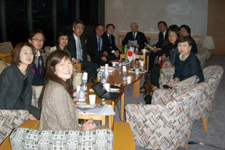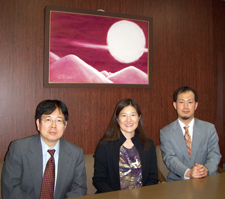Professor Carol Suzuki Pursues Research in Japan
August 8, 2011

Cultural aspects that come into play when families are faced with end-of-life issues are the focus of Professor Carol Suzuki's current scholarship. She combined this concentration with her Japanese heritage during a recent six-week trip to Japan.
"I have been interested in end-of-life planning issues and, as a clinician, I was also interested in seeing how Japan's new clinical law programs were developing," she said.
Suzuki met with law professors, made presentations at a selection of law schools and spoke at the Japan Clinical Legal Education Association's annual meeting in western Japan. At the meeting, she discussed how clinical law programs can respond to disasters to help affected communities.
In Tokyo, where her cousin lives, Suzuki visited with the Shihoushoshi Lawyers Association. With her cousin serving as interpreter, Suzuki learned that in Japan, family members typically make end-of-life decisions for the elders, and that rather than laws, the country relies on guidelines to ensure the elders' rights are protected.
Also in Tokyo, she visited the Institute of Contemporary Asian Studies on Temple University's Japanese campus, where in a discussion with a group of physicians, law professors and lay people, she learned of the challenges many families face.
"Some of these people had experiences of loved ones dying in the United States and were concerned about how to honor the wishes of their loved ones in the Japanese culture where family members make the decisions for that person," said Suzuki. "Even the Japanese doctors thought a patient should be more empowered in making those decisions."

Among the dozen schools she visited across Japan were Aoyama Gakuin University Law School, where she presented a lecture, and Hokkaido University School of Law, where she taught an undergraduate comparative law class.
Throughout her conversations, Suzuki was impressed with the thoughtful concerns of both medical and legal practitioners over how to ensure patient autonomy within Japan's culture and system of end-of-life decision-making.
"Japan is struggling with how to meet the needs of the elderly, much as the U.S. is," she said. Suzuki's next step is to put together a paper comparing the two systems.
Suzuki was the recipient of a Dean's Award for Distinguished Law School Service, which helped fund her trip.
